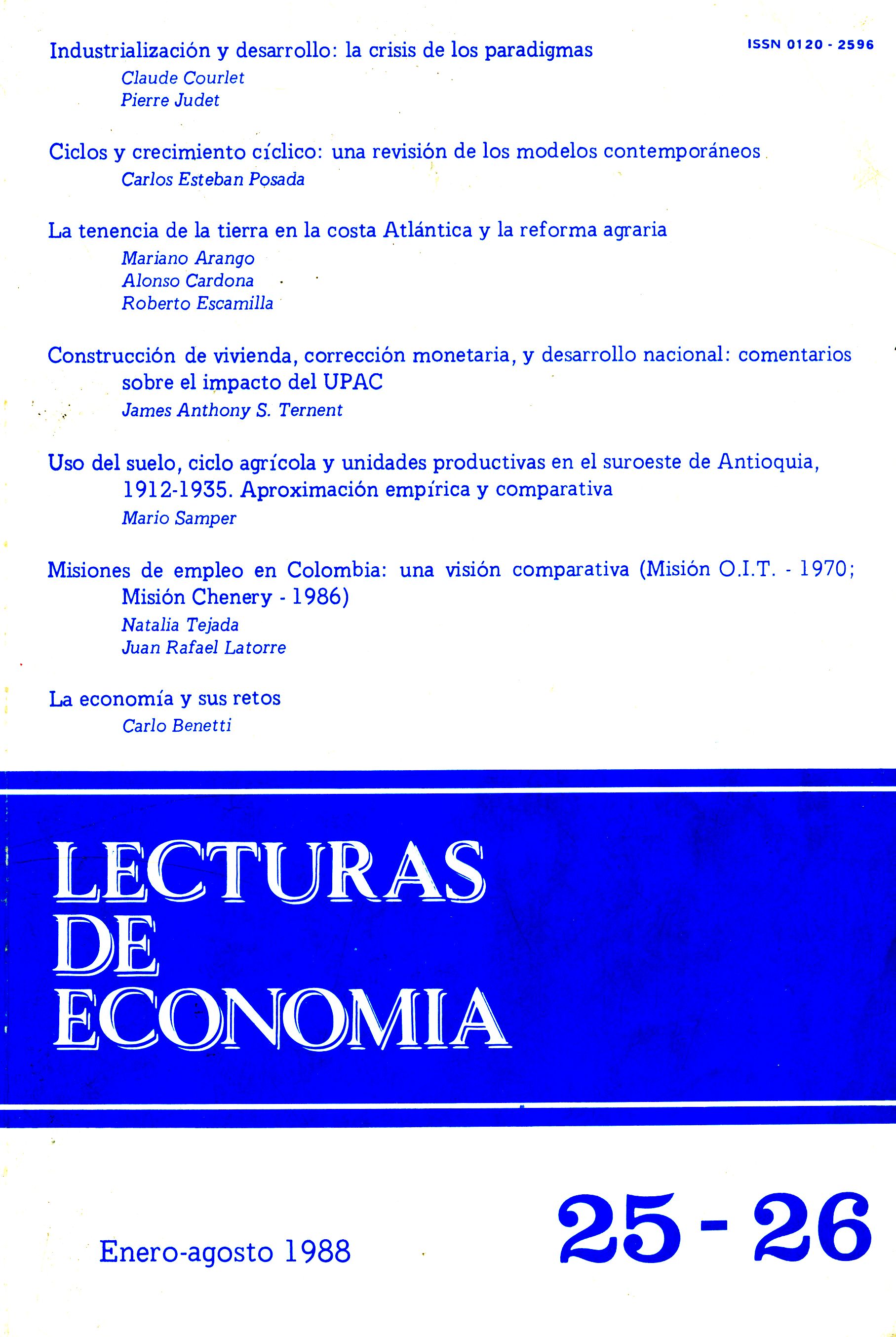La tenencia de la tierra en la costa Atlántica y la reforma agraria
DOI:
https://doi.org/10.17533/udea.le.n25-26a7762Abstract
• Resumen: En el artículo, basado en tres estudios sobre tenencia de la tierra en los municipios atendidos por el programa de Desarrollo Rural Integrado –DRI- en los departamentos de Córdoba (1986), Sucre y Atlántico (1987) se ilustran las ideas principales, relativas a la reforma agraria, que se desprenden de los mismos. Así: 1. la reforma debería afectar los predios de todos los tamaños pertenecientes a los terratenientes; 2. es necesario un plan de reforma que afecte tierras fértiles y bien situadas; 3. son aconsejables un impuesto a la tierra sin mejoras, previo a la reforma redistributiva y la congelación del precio de la tierra en las zonas cubiertas por el plan de reforma; 4. es recomendable un plan de reforma que beneficie prioritariamente a los minifundistas (y no a los jornaleros sin tierra).
• Abstract: This article is based on three previous studies about land tenancy in the regions covered by the Integrated Rural Development Program (DRI) of Córdoba (1986), Sucre and Atlántico (1987). It discusses the main ideas, concerning the agrarian reform, found in these studies, as follows: 1. the reform should affect property of all sizes belonging to big landowners; 2. it is necessary that this reform plan include fertile and well located properties; 3. previous to the redistribution reform it is desirable to enforce tax on unimproved land and to stabilize land prices on the zone covered by the reform plan; 4. the reform plan should give priority to the welfare of small landowners (instead of wage-earners who don't possess land).
Downloads
Downloads
Published
How to Cite
Issue
Section
License
This page, by Universidad de Antioquia, is licensed under a Creative Commons Attribution License.
Authors who publish with this journal agree to retain copyright and grant the journal right of first publication, with the article licensed under a Creative Commons Attribution-NonCommercial-ShareAlike License allowing others to share it as long as they acknowledge its authorship and original publication in this journal.
Authors can enter into separate, additional contractual arrangements for the non-exclusive distribution of the journal's published version of the work (e.g., post it to an institutional repository or publish it in a book), provided that these arrangements be not for profit and the journal be acknowledged as the original source of publication.
Authors are permitted and encouraged to post their papers online (e.g., in institutional repositories or on their websites), as it can lead to valuable exchanges as well as greater citation of the published work.







